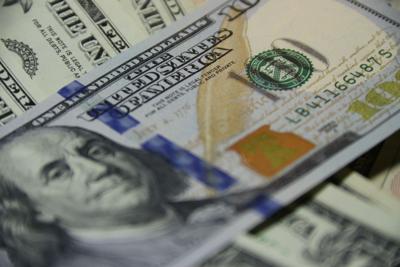Who is the "1 percent?" In Louisiana, it's a household earning at least $318,393 per year.Â
from the left-leaning Economic Policy Institute offers easy-to-read data on income inequality (the unequal distribution of income among people who are making money) throughout the U.S., examined by state, city and metropolitan area.
Authors Estelle Sommeiller and Mark Price echo the conclusion of many other economists: in most states and nationwide, incomes for a very small group of households are growing much faster than incomes for the remaining 99 percent of households. In nine states, just 1 percent of families has captured half or more of all income growth since the Great Recession.Â
New Orleans residents need on average to earn at least $19.15 per hour to rent a two-bedroom apartment in the city and live comfortably, a rep…
"This analysis finds ... that there has been vast and widespread growth in income inequality in every corner of the country," the authors write. "The top 1 percent has steadily captured a growing share of the benefits of America’s economic growth, with the share of all income going to the top 1 percent moving closer in 2015 to its 1928 peak."
Some national trends don't hold up in Louisiana. Since the Great Recession, the state's 1 percent has captured a much smaller proportion of income growth than almost anywhere else in the country (only 3.7 percent, compared to a national average of 41.8 percent). The state also contains the metro area with one of the nation's smallest gaps between the incomes of the 1 percent and the 99 percent, in Fort Polk South near the Texas border.Â
Overall, the report finds that , where the top 1 percent of families makes 18.1 times what the bottom 99 percent of households does. Just 1 percent of families scoops up 15.4 percent of the state's income. The average annual income for the top 1 percent of households in the state is $814,386; average wages for everyone else are $41,600.Â
Louisiana perpetually falls near the bottom of lists evaluating measures of public health and citizen welfare — in poverty, maternal mortality…
State-level findings highlight Orleans Parish as the most unequal parish in the state, where the top 1 percent of earners makes 29 times more than the bottom 99 percent. The average income for the top 1 percent in the parish is $1,200,767 (yes, that's seven figures) to the 99 pecent's $41,434.
It's the 97th-most unequal of all counties or parishes nationwide.Â
The report also identifies the most unequal metropolitan area in the state (Opelousas, where the 1 percent makes 26.5 times the income of the bottom 99 percent of earners). There, the 1 percent averages $1,041,641 in income to the 99 percent's $39,244.
The New Orleans-Metairie metropolitan area is the 148th-most unequal in the country. The Jackson, Wyo. area, several metropolitan areas in Florida and Bridgeford-Stamford-Norwalk in Connecticut earn the top spots.
Sommeiller and Price write that these trends are happening for a few reasons: the decline of unions and collective bargaining, the decreased purchasing power of the minimum wage, policies (such as last year's tax reform package) whose benefits accrue mostly to the already-fortunate and spikes in the pay of the highest-paid professionals.
"Policy choices and cultural forces have combined to put downward pressure on the wages and incomes of most Americans even as their productivity has risen," they write. "As a result, CEOs and executives at the commanding heights of the private economy have appropriated a rising share of the nation’s expanding economic pie."
The authors also attribute expanding inequality to a rise in income that is linked to assets, such as real estate or financial investments. What this ultimately means is that those born rich are more likely to remain rich, and vice versa: those born poor are increasingly likely to stay that way.Â
The report characterizes this as a "new Gilded Age," and specifically points to , the end of and other recent court decisions and policy moves that continue to contribute to income inequality, even as the economy improves overall.Â
"All of these actions are a step in the wrong direction if the country is going to shrink the gap between those at the top and everyone else," the authors write.Â
"Reinventing America as a land of widespread opportunity requires economic policy that aims to ensure every child has access to adequate food, shelter, health care, child care, and education — whether that child is the daughter of a janitor or the son of a real estate tycoon."





